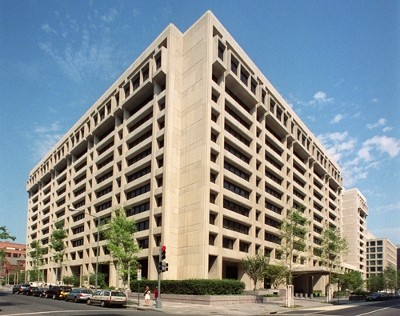IMF Admits Mistakes on Greece Bailout
Post on: 16 Март, 2015 No Comment

Fund Says It Bent Rules on Debt Relief, but Argues That Bought Time for Europe to Limit the Fallout
ENLARGE
But the fund also stressed that the response to the crisis, coordinated with the European Union, bought time to limit the fallout for the rest of the 17-nation euro area.
And while IMF officials said the lessons learned would lead them to take a tougher stance in future bailouts, they also said that there was little else the fund could have done at the time.
If we were in the same situation…we would have done the same thing again, said Poul Thomsen, the IMF’s lead negotiator in the bailout talks, referring to its signing on to the deal in 2010 despite the lack of any debt relief.
More Coverage
The Washington-based fund released the document, prepared by IMF staff, on Wednesday after its contents were reported by The Wall Street Journal.
Over the last three years, a number of senior IMF figures, including Managing Director Christine Lagarde. have repeatedly said that Greece’s debt level was sustainable—likely to be repaid in full and on time.
Yet the document described the uncertainties around the rescue as so significant that staff was unable to vouch that public debt was sustainable with a high probability.
ENLARGE
A Greek flag flutters on above the parliament building as the moon rises over Athens, in a photo taken on May 23. Reuters
Two former IMF officials said the fund’s chief lawyer, Sean Hagan, repeatedly warned in mid-2010 that the Greek program was bordering on breaking the institution’s rules.
The IMF changed its rules in 2010 to allow countries to get exceptional access to its credit lines, or much bigger loans than normal.
What happened at the time, and it’s much easier with the benefit of hindsight, is that not all criteria of exceptional access as defined at the time were satisfied, Ms. Lagarde said in a separate interview last week.
And yet there was a crying need at the time for support, she said. If the IMF hadn’t tweaked its rules, it probably would have meant no IMF support at that time.
She said the review of the fund’s experience will probably lead us to reassessing the exceptions to the exceptional access criteria and will certainly lead us to calibrating well how we work with regional financing arrangements.
The IMF is also working to make its debt assessments more rigorous, she said, and will place a higher priority on technical assistance for capacity-building such as banking supervision and tax collection—areas that were of particular concern in Greece.
In contrast to its decision in 2010, the IMF’s latest periodic review of how the bailouts are going, also released on Wednesday, said Greece’s European creditors may have to consider speeding up the debt relief promised in the second deal, in 2012.
The IMF report said that it had been too optimistic in 2010 about the Greek government’s prospects for a return to market financing and its political ability to implement the conditions of its rescue program.
The greater beneficiary of the 2010 bailout wasn’t so much Greece as the wider euro zone, the document suggested.
It described the rescue as a holding operation that gave the euro area time to build a firewall to protect other vulnerable members and averted potentially severe effects on the global economy.
The IMF joined forces with the European Commission and the European Central Bank in 2010, forming the so-called troika, to manage Greece’s first bailout of €110 billion ($143 billion)—one of the largest international rescues ever.
The three continued to run the country’s second bailout as well as the Irish, Portuguese and Cypriot bailouts.
While the fund has been scaling back its new financial commitments to euro-zone economies, it has put up a total of $47 billion for Greece, the biggest loan the IMF has ever made when compared with the size of a country’s economy.
While criticizing the delay in restructuring Greece’s debt load, the fund conceded that cutting it before 2012 was politically difficult because of resistance from some euro-area countries, whose banks held too much Greek government debt.
An immediate restructuring would have been cheaper for European taxpayers, as private-sector creditors were repaid in full for two years before 2012 using the money borrowed by Athens. Greece’s debt level thus remained undented, but it was now owed to the IMF and euro-zone taxpayers instead of banks and hedge funds.
The IMF also said its own analysis of the future development of debt was wrong by a large margin. The fund’s debt-sustainability analysis—a critical piece of forecasting—included stress tests but these turned out to be mild compared with actual outcomes.
The Greek Finance Ministry declined to comment.
Euro-zone officials promised in May 2012 to cut the value of Greece’s outstanding debt if Athens lives up to its vow for more budget cuts, higher revenues and a restructuring of the country’s broken economy.
The program has a target of cutting Greek debt to 124% of gross domestic product by 2020 and substantially below 110% by 2022, from a peak of 175% this year. Euro-zone officials said they expect to review debt restructuring by the beginning of 2014.
In its review Wednesday, the IMF said that it is questionable whether Greece will be able to pay its obligations if it continues to hold unhealthy levels of debt well into the next decade. Debt projections are extremely sensitive to any delays, it said.
Should debt sustainability concerns prove to be weighing on investor sentiments even with the framework for debt relief now in place, and strong program implementation by the Greek authorities notwithstanding, a more front-loaded approach to debt relief would need to be considered, the fund said.

The issue of the so-called fiscal multiplier—an estimate of how much an economy will contract for every euro in spending cuts or tax increases—has become part of the government’s arsenal in its negotiations with the troika.
In talks next week, Greece will ask for permission to cut certain value-added, or sales taxes, arguing that an increase in restaurant taxes, for example, has generated less revenue not more by crimping spending.
Conversely a cut in the tax rate for eateries, the government says, could actually boost revenue by drawing in more diners. So far, however, officials at the European Commission have been cool to the idea.
The commission, which is the European Union’s Brussels-based executive, comes in for special criticism in the IMF document.
The report says the commission tended to draw up policy positions by consensus, had enjoyed limited success with implementing [fiscal conditions]…and had no experience with crisis management.
It adds that the commission focused more on compliance with EU norms than on growth impact and wasn’t able to contribute much to identifying growth-enhancing structural reforms.
The commission is the lead EU institution tasked with designing and promoting growth-enhancing and job-creating policies for the entire bloc. The commission declined to comment on the report.
None of the [troika] partners seemed to view the arrangement as ideal, the paper continued in a section discussing the unusual arrangement, noting that there were marked differences of view within the troika, particularly with regard to the growth projections.
Those growth projections were wildly off the mark but Greece still had to meet the same targets of cutting its deficit, it said. The fiscal targets became even more ambitious once the downturn exceeded expectations. In addition, the starting point moved.
The paper added that the targets and the underlying macroeconomic projections weren’t revised to reflect what was actually happening in Greece for 18 months, until December 2011.
The IMF had originally projected Greece would lose 5.5% of its economic output between 2009 and 2012. The country has lost 17% in real gross domestic output instead. The plan predicted a 15% unemployment rate in 2012. It was 25%.
Slowing the pace of austerity would have helped Greece’s economy, but wasn’t politically possible, the fund said.
While earlier adjustment of the targets could have tempered the contraction, the program would have then required additional financing, which neither the IMF nor euro-area governments were prepared to give, the document said.
The paper criticized Greek governments for failing to implement structural economic changes that could have propped up the private sector and said the pain of the adjustment was unevenly spread across society.
But it said there were few precedents for the size of the spending cuts and tax increases that Greece implemented to hit the targets.
Alkman Granitsas in Athens contributed to this article.














